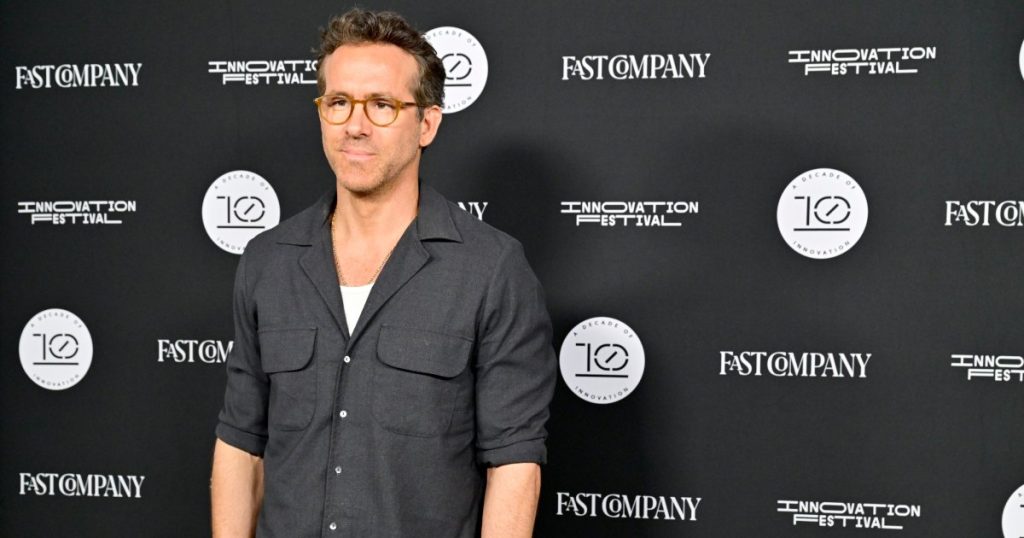The Escalating Legal Battle Between Justin Baldoni and Blake Lively/Ryan Reynolds
The legal dispute between director Justin Baldoni and actors Blake Lively and Ryan Reynolds has intensified, evolving from an initial lawsuit filed by Lively into a complex exchange of accusations and counter-accusations. The core of the conflict stems from Lively’s allegations of a hostile work environment and sexual harassment during the filming of "It Ends With Us," directed by Baldoni. Baldoni vehemently denies these claims, and the legal battle has escalated significantly with the release of purported text messages and a substantial counter-lawsuit.
Central to Baldoni’s defense are a series of text messages allegedly sent by Ryan Reynolds, Lively’s husband, which Baldoni claims demonstrate his positive working relationship with the couple and contradict Lively’s allegations. These messages, released via a website established by Baldoni’s legal team, depict Reynolds praising Baldoni’s character and expressing enthusiasm for his collaboration with Lively. Reynolds allegedly commends Baldoni as a "stand-up person" and acknowledges Lively’s high standards in choosing projects, implying her involvement with "It Ends With Us" signifies her confidence in Baldoni. The messages also include Reynolds’ purported attempts to adjust the film’s schedule to accommodate family commitments, further suggesting a cordial and collaborative atmosphere.
The release of these messages forms a key component of Baldoni’s counter-offensive against Lively, Reynolds, and Lively’s publicist, Leslie Sloan. Baldoni has filed a lawsuit accusing them of civil extortion, defamation, invasion of privacy, and other offenses, seeking a substantial $400 million in damages. He alleges that Lively’s initial lawsuit and subsequent actions are part of a concerted effort to damage his reputation and extort money. Lively has denied these allegations and is seeking dismissal of Baldoni’s lawsuit. This complex web of accusations and counter-suit highlights the deeply entrenched nature of the conflict.
The timeline of events reveals the rapid escalation of this legal battle. Lively’s initial lawsuit, filed in December 2024, accused Baldoni of creating a hostile work environment and engaging in sexual harassment on the set of "It Ends With Us." Baldoni promptly denied these allegations. In January 2025, Baldoni’s legal team announced the impending launch of a website containing evidence to refute Lively’s claims. The website, subsequently launched, contains purported text messages, legal documents, and a timeline of events related to the dispute. Baldoni’s counter-lawsuit followed, significantly amplifying the legal stakes and further entrenching the conflict between the parties.
The release of the purported text messages by Baldoni aims to portray a collaborative and respectful working relationship between him and the Reynolds-Lively couple. These messages, if authentic, could challenge the narrative presented by Lively’s lawsuit and raise questions about the veracity of her allegations. However, the authenticity and interpretation of these messages are likely to be fiercely contested in court. Lively’s legal team will likely scrutinize the context and completeness of the messages and may offer alternative interpretations of their meaning. The legal proceedings will ultimately determine the weight given to these messages in assessing the merits of both Lively’s and Baldoni’s claims.
The legal battle between Baldoni and Lively/Reynolds highlights the complex and often contentious nature of disputes arising in the entertainment industry. Allegations of misconduct can significantly impact the reputations and careers of those involved, and the pursuit of legal remedies can become a protracted and costly process. The conflicting narratives presented by both sides underscore the importance of thorough investigation and due process to determine the truth of the allegations. The outcome of this legal battle will have significant ramifications for all parties involved and could set precedents for future disputes in the industry. The $400 million damages sought by Baldoni indicates the perceived magnitude of reputational and financial harm he claims to have suffered. The courts will ultimately decide the validity of both Lively’s initial lawsuit and Baldoni’s subsequent counter-suit, potentially shaping the legal landscape for workplace conduct and defamation claims in the entertainment industry. The case also draws attention to the increasing use of public platforms and digital communication in high-profile legal disputes, adding another layer of complexity to the proceedings.

